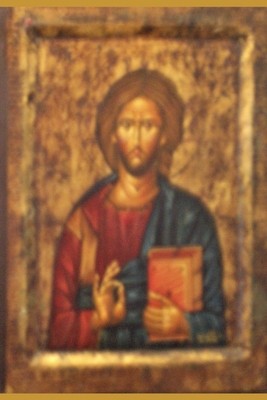
- We will send in 10–14 business days.
- Author: Christopher Huggett
- Publisher: CreateSpace Independent Publishing Platform
- ISBN-10: 1721930140
- ISBN-13: 9781721930142
- Format: 15.2 x 22.9 x 0.8 cm, softcover
- Language: English
- SAVE -10% with code: EXTRA
Reviews
Description
"He is the icon of the unseen God" (Colossians 1:15)."The brilliance of the splendour of the good news of the Messiah, who is the icon of God" (2 Corinthians 4:6).Christianity teaches that Jesus Christ was completely God and completely human, but it is hard to understand what this means, especially since the creeds use descriptions, such as, "of one substance with the Father", which are based on an understanding of physics, established centuries before Jesus and rejected by science four centuries ago! In this work, Revd Huggett traces, both for the scholar and the ordinary Christian, the development of the doctrine of the Incarnation in the New Testament and the early church, examining it alongside the modern distinction between the Jesus of history and the Christ of faith. These are shown to be an alternative way of looking at Jesus, one describing him as completely human and the other as completely divine. The two approaches are brought together in the illustration of an icon, which is based on the historical Jesus but portrays him as the Christ of faith. The latter, the revelation of the word and image of God, is created and interpreted only through faith. In this process, which is the true expression of the Incarnation, Jesus Christ is recognised as the icon of God himself, showing us God in the form of a man.This work is a development of the ideas, first discussed by Revd Huggett in "Stereoscopic Theology" (2017). The ancient theological problem of the incarnation and the modern dichotomy between the Jesus of history and the Christ of faith are shown to be differing ways of approaching the same puzzle. Both are illuminated by recognising the Christ of faith, the divine aspect of Jesus, as the icon of God himself, superimposed on the human Jesus of history.
- Author: Christopher Huggett
- Publisher: CreateSpace Independent Publishing Platform
- ISBN-10: 1721930140
- ISBN-13: 9781721930142
- Format: 15.2 x 22.9 x 0.8 cm, softcover
- Language: English English
"He is the icon of the unseen God" (Colossians 1:15)."The brilliance of the splendour of the good news of the Messiah, who is the icon of God" (2 Corinthians 4:6).Christianity teaches that Jesus Christ was completely God and completely human, but it is hard to understand what this means, especially since the creeds use descriptions, such as, "of one substance with the Father", which are based on an understanding of physics, established centuries before Jesus and rejected by science four centuries ago! In this work, Revd Huggett traces, both for the scholar and the ordinary Christian, the development of the doctrine of the Incarnation in the New Testament and the early church, examining it alongside the modern distinction between the Jesus of history and the Christ of faith. These are shown to be an alternative way of looking at Jesus, one describing him as completely human and the other as completely divine. The two approaches are brought together in the illustration of an icon, which is based on the historical Jesus but portrays him as the Christ of faith. The latter, the revelation of the word and image of God, is created and interpreted only through faith. In this process, which is the true expression of the Incarnation, Jesus Christ is recognised as the icon of God himself, showing us God in the form of a man.This work is a development of the ideas, first discussed by Revd Huggett in "Stereoscopic Theology" (2017). The ancient theological problem of the incarnation and the modern dichotomy between the Jesus of history and the Christ of faith are shown to be differing ways of approaching the same puzzle. Both are illuminated by recognising the Christ of faith, the divine aspect of Jesus, as the icon of God himself, superimposed on the human Jesus of history.


Reviews